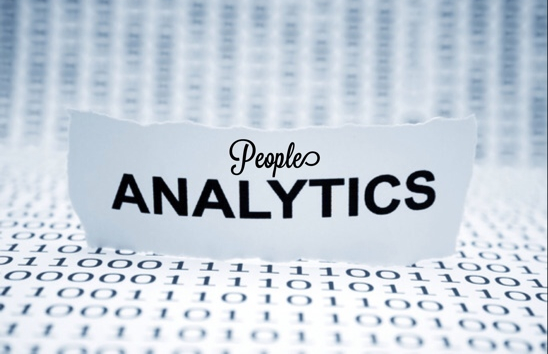This is a super-long, but super-interesting discussion between two UPenn professors (Adam Grant and Cade Massey) on the rise of people analytics, how teams can work effectively, and how we should be hiring, amongst other topics. A video is also embedded above.
If you’re interested in those types of topics, I’d definitely read through that whole link. And when you do, come back here and see if you have the same major question I do: how long are we going to deal with this “Let’s make decisions off of gut feel” vs. “Let’s make decisions off of data” question?
Adam Grant even says this at the end of the discussion above:
From my perspective, probably the biggest unanswered question for people analytics is what Cade’s working on right now, which is: Why don’t more organizations do this? And how can you get senior leaders to realize that just because sometimes these variables are hard to measure doesn’t mean you shouldn’t bring better science to them? And what does it take to open the minds of leaders to recognizing that if we had more data it won’t replace our jobs. It’ll actually give us the tools we need to make better judgments.
Stephen Dubner — one of the Freakonomics guys — has talked about this general concept as well (ironically, also with Adam Grant). Basically, here are the issues:
- We’ve been talking about how we value “Big Data” for a few years now, but the C-Suite doesn’t really get it.
- Part of the problem is that we’re not yet sure if “Big Data” can ever mean “Big Money.”
- Another part of the problem is that to be good at “data-driven decision-making,” you need the right people in place…
- … but schools aren’t really teaching data-driven decisions yet …
- … and most people confuse what skill sets they actually are looking for.
- At the same time as all that is happening, senior leaders fear incompetence, like we all do.
- Most people come up in a working world being fed stuff like “We need to be vigorous in our decision-making!” and “Don’t back down!” or whatever.
- As a result, senior leaders tend to trust their guts on a lot of decisions; if they want to try something new or audacious, they’ll probably bring in a consultant so that they have someone to throw under the bus if/when it doesn’t work.
- Big Data and Analytics-Driven Decisions are thus a threat to most senior executives.
- Even though you could look at actual data — about consumers, about potential hires, about anything really — and say, “OK, well based on these trends, this might work…,” senior leaders don’t want to do that.
- If data and analytics works too well, wouldn’t that mean the whole idea of a “senior team” is meaningless? You just need a few guys/gals and a bunch of good data scientists and product people and you could make millions?
This is the tipping point for business right now, honestly. I’ve met so many senior leadership people who tell me (or write online) that data and analytics is “a fad” or something similar. (Sadly, a lot of senior people say the same thing about mobile, which is funny because there’s more cell phones on the planet than human beings at the present moment.)
There’s a “way business has always been done” — which is focusing more on your finance and sales side, not caring about people, and only using data in terms of reporting financial metrics — and there’s a “way business needs to be done now,” which focuses more on making good decisions based on information you have, valuing people, spending some time thinking about issues like “talent strategy,” and the like.
There’s a huge disconnect between the two in the eyes of a lot of senior management types around the world. Part of it, I think, is that most senior leaders are probably mid-50s. They probably think if they hold on another 10-15 years and keep things humming along as they understand them, they can retire and go do the “see the world” kick. (Bye bye, millennial inheritances.)
Thing is: business world changes fast. If you can start thinking about your strategic advantages and best plays in a different way — say, around soft skills like engagement, respect, work-life balance, etc. — you could actually start making money hand over fist. Google gets it. Sure, they have a ton of money and that’s what most people point to … but the real value internally is how they conceptualize, analyze, and ultimately treat their people. It is a potential advantage. Embrace it.

Reblogged this on Gr8fullsoul.